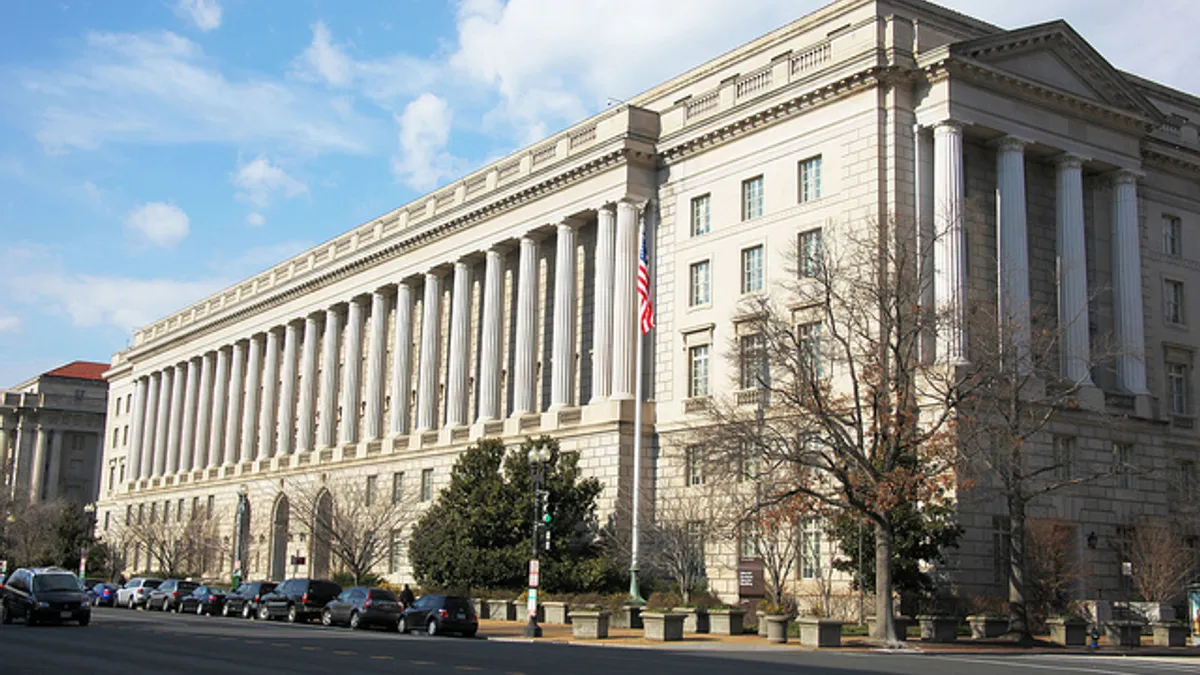Dive Brief:
- Employers should not treat cash payments made under leave-based donation programs to aid victims of the COVID-19 pandemic as compensation, the IRS said in a June 11 notice.
- The notice refers specifically to donation programs in which employees can elect to forgo vacation, sick or personal leave. The resulting cash payments must be made to section 170(c) charitable organizations for relief of pandemic victims and must be paid to such organizations before Jan. 1, 2021.
- Employees who elect forgo leave may not claim a charitable deduction for the value of the leave. But employers may deduct such cash payments as a business expense or as a charitable contribution if the employer otherwise meets legal requirements, IRS said in a statement.
Dive Insight:
The agency's announcement details one of several tax deductions and credits impacting employee benefit plans during the pandemic.
In May, the IRS announced that employers that qualify for the Coronavirus Aid, Relief, and Economic Security Act's employee retention credit may treat health plan expenses paid to furloughed employees as qualified wages for purposes of the retention credit. Any such health plan expenses must be paid or incurred after March 12, 2020, and before Jan. 1, 2021, and they are subject to a maximum of $10,000 per employee for all calendar quarters for all qualified wages. Small businesses that are required to provide paid family and medical leave under the Families First Coronavirus Response Act are eligible for two refundable payroll tax credits designed to grant 100% reimbursement for providing the leave, the IRS said in March.
The June 11 notice is similar to previous IRS notices regarding leave-based donations, Bruce H. Schwartz, principal at Jackson Lewis P.C., wrote in a blog post for the firm. In 2017, for example, the agency issued a notice regarding the tax treatment of leave-based donation programs for victims of Hurricane Harvey and Tropical Storm Harvey.













